This week’s blog responds to questions from teachers and behavioural support workers who provide a safe space in secondary schools at breaks and lunchtimes for vulnerable youngsters. The answer to whether you should have games and which games you should buy is a relevant one in all learning environments. Games are an excellent way of enabling young people to connect: games have a clear and certain set of rules; there is a focus to your interaction which removes the need for having to ‘do chatting’ and in addition winning and losing are both valuable. Winning and losing are opportunities to teach pupils socially acceptable behaviour, where we are able to demonstrate how to be a gracious winner and how to be resilient when we lose. Failure is vital in learning and games allow us to lose in an environment where pupils are safe to take risks. Losing is often how we learn; we learn not to do ‘that’ again and we learn that losing isn’t the terrible disaster we thought it would be. I have played strategy games with adults and children where the response to losing is an instant ‘Right, I know what I’m doing now. Can we play again?’ Games let us experiment with losing when the stakes are low.
When you’re trying to wangle money out of the high ups for some games you can quote Dweck of course:
“Did I win? Did I lose? Those are the wrong questions. The correct question is: Did I make my best effort?” If so, he says, “You may be outscored but you will never lose.” ― Carol S. Dweck, Mindset: The New Psychology of Success
or, as I prefer – Michael Jordan:

I have selected a variety of games which reinforce elements of the curriculum and helpfully explicitly linked a valid Learning Outcome so when they say ‘We can’t afford that’, not only can you quote Dweck, you can point to the Learning Outcome and say “See! It’s Educational and Cross Curricular” (they love that!)
Zombie Dice
Zombie Dice is an exercise in probability but kids don’t need to think about that. They just need to be a Zombie and eat as many brains as possible before they are shot. This is quick to learn and quick to play. Roll the dice to determine your fate, score brains, get shot or watch your victim make a run for it. Each turn you roll three dice. You can stop at any time and log your score but if you get shot 3 times you lose any brains you scored that turn.
The dice are weighted to allow you to calculate your risk. Red dice mean you are more likely to be shot, green you are more likely to feast on brains and yellow could go either way. So as they draw the dice you can encourage them to think about how likely it is they’ll have their head shot off!

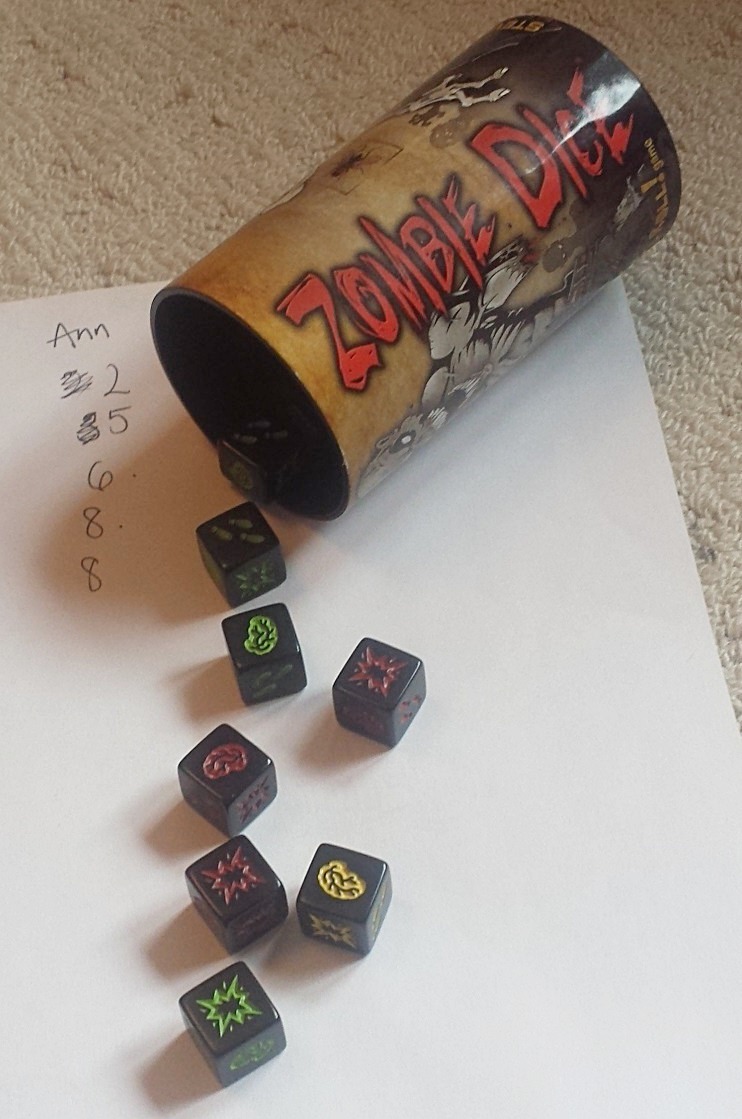
The standard game is about £12.99 and any number can play.
Learning Outcome: Pupils are learning to work out probability and also to take calculated risks.
Escape from the Curse of The Temple
Escape from The Curse of The Temple is one of our favourites. It’s a co-operative game so, one dies, you all die! You roll the dice to enable you to lay more tiles and find the exit. There are gems to be collected so that you will be able to escape. If you roll black masks your dice will ‘lock’, this means you can’t reroll them until you’ve rolled enough yellow masks or until a teammate rolls them for you. It only lasts 10 minutes so the team work is intense and usually involves a lot of shouting. A CD soundtrack adds to the intensity or, you can play with a timer. It is without fail the game that people want to play again if they lose.
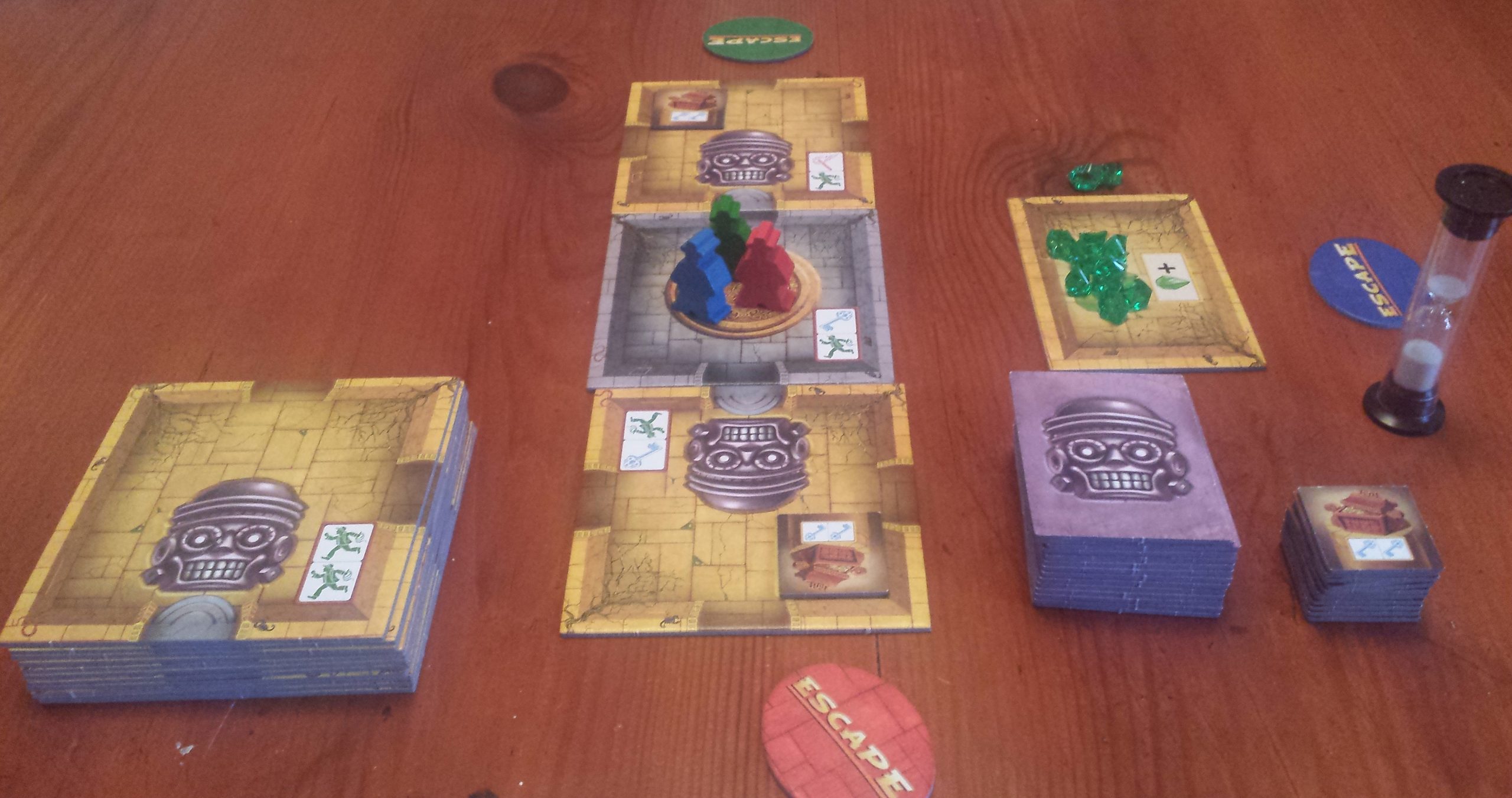
Once you have mastered the basic game there is an expansion pack included with curses that add challenges: you are not allowed to speak; you play with one hand on your head; if your dice goes off the table you’ve lost it! So although it’s a more expensive game (around £37.50) it’s a good investment. It reinforces the idea of learning from failure and also that sometimes it’s fun even when we fail! Up to 5 people can play and it can be played solo so that you are just competing against the game.
Here we are shouting at each other and swearing a bit – we’d had wine which is unavailable at most school break times!
Learning Outcome: Pupils are learning to listen in a busy atmosphere, they make quick decisions and work as a team to achieve a shared outcome.
Fluxx
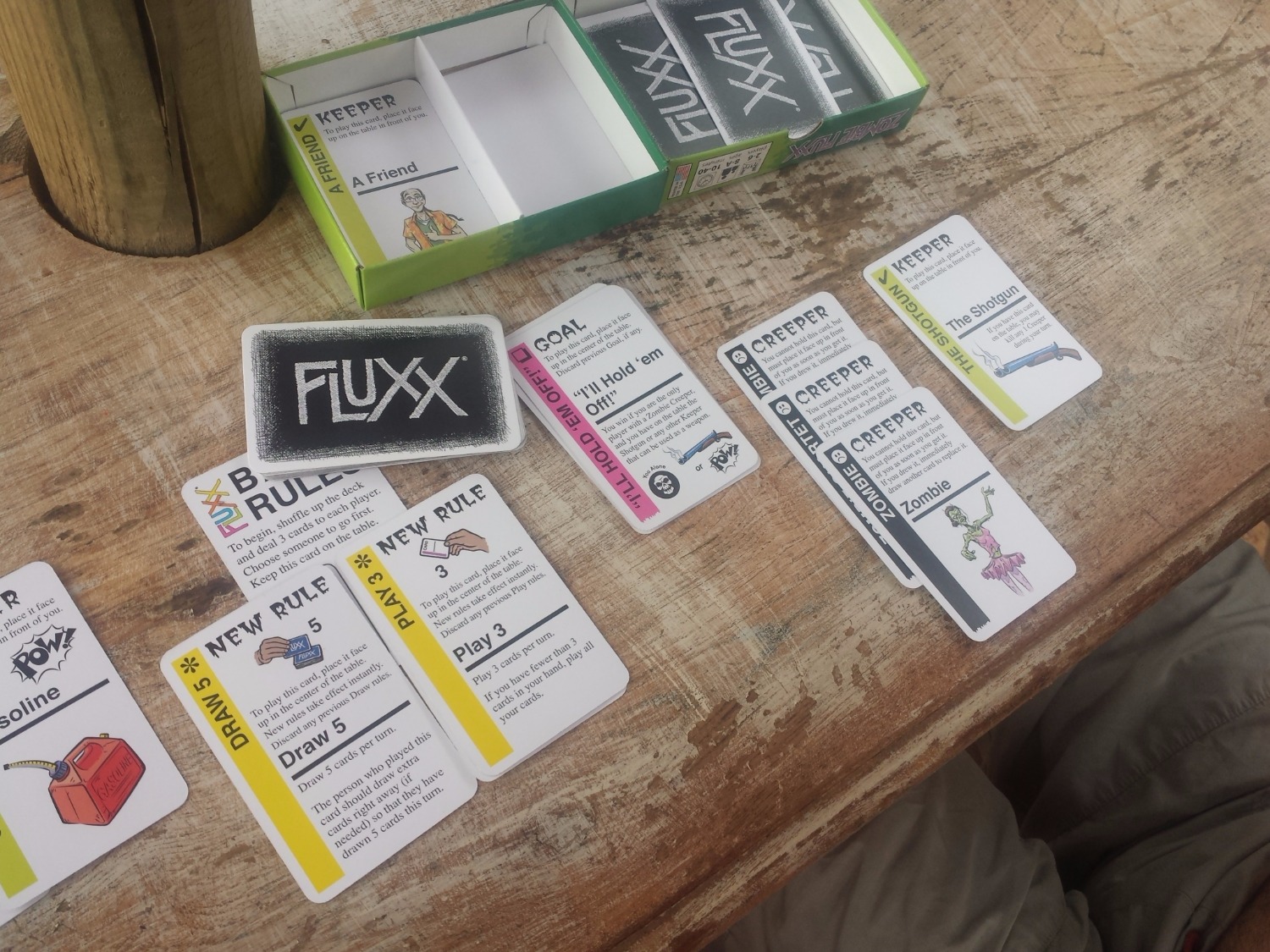
People have mixed reactions to Fluxx. The title of the game says it all. It is in a constant state of fluxx – each turn you play cards which can change how many cards you pick up; how many cards you play on a turn and even what you need to do to win. I have the Zombie version (are you noticing a theme?!) but there is a basic version too. I have played it with a teenager with Aspergers and I expected that he would hate it but in fact he thought it was funny that the rules were so chaotic and I think it’s been good for him to experiment with rapid change. One minute you’ve got your strategy all sorted, you are definitely going to win on your next turn. Then BAM! rule change, goal change and you’ve lost!
It is quick to learn and you can have any number of people playing. Because losing and winning in this game is so arbitrary it actually makes the game more fun, there is no pressure at all to create a complex, intelligent strategy. There is an element of strategy but that must be constantly adapted which is it’s own challenge.
It costs around £10 and needs 2 or more players.
Learning Outcome: Pupils are learning to constantly adapt to changes and amend their plans accordingly.
Exploding Kittens
Exploding Kittens is a relatively quick game for up to 5 players. The aim of the game is to avoid picking up the Exploding Kitten card and instead try to make an opponent pick it up. The theme is one most people will engage with immediately; the illustrations on the cards are quirky and the text is good fun. Cards carry clear instructions so it is a fun, easy game to play. There is an element of strategy and choices to be considered when playing your cards. The rule that you play as many cards as you like on your go (before picking up a card to end your turn) means that you need to consider how cards work together to avoid the kitten or have it blow up in an opponent’s face!
Definitely a fun choice. It costs around £15.
Learning Outcome: Pupils will plan and adapt plans based on what others do. Reluctant readers will be encouraged to read the cards.
Great Shakespearean Deaths
Available from the RSC, this is basically Top Trumps but with fabulous illustrations by Chris Riddell (a game that can be used to engage reluctant readers, perhaps pointing them towards the Goth Girl novels). There is no strategy or skill involved just some straightforward weighing up of odds and in the style of Horrible Histories, homing in on the gruesome bits of Shakespeare to engage learners. Characters are rated on
- speed of death
- gore and brutality
- fairness
- piteousness
- dramatic quality
- last words
In particular piteousness and fairness could be used to provoke discussion and consideration of the audience’s response to characters as well as Shakespeare’s presentations of them. This could be used to lead pupils into a classic exam question ‘How does Shakespeare present …’
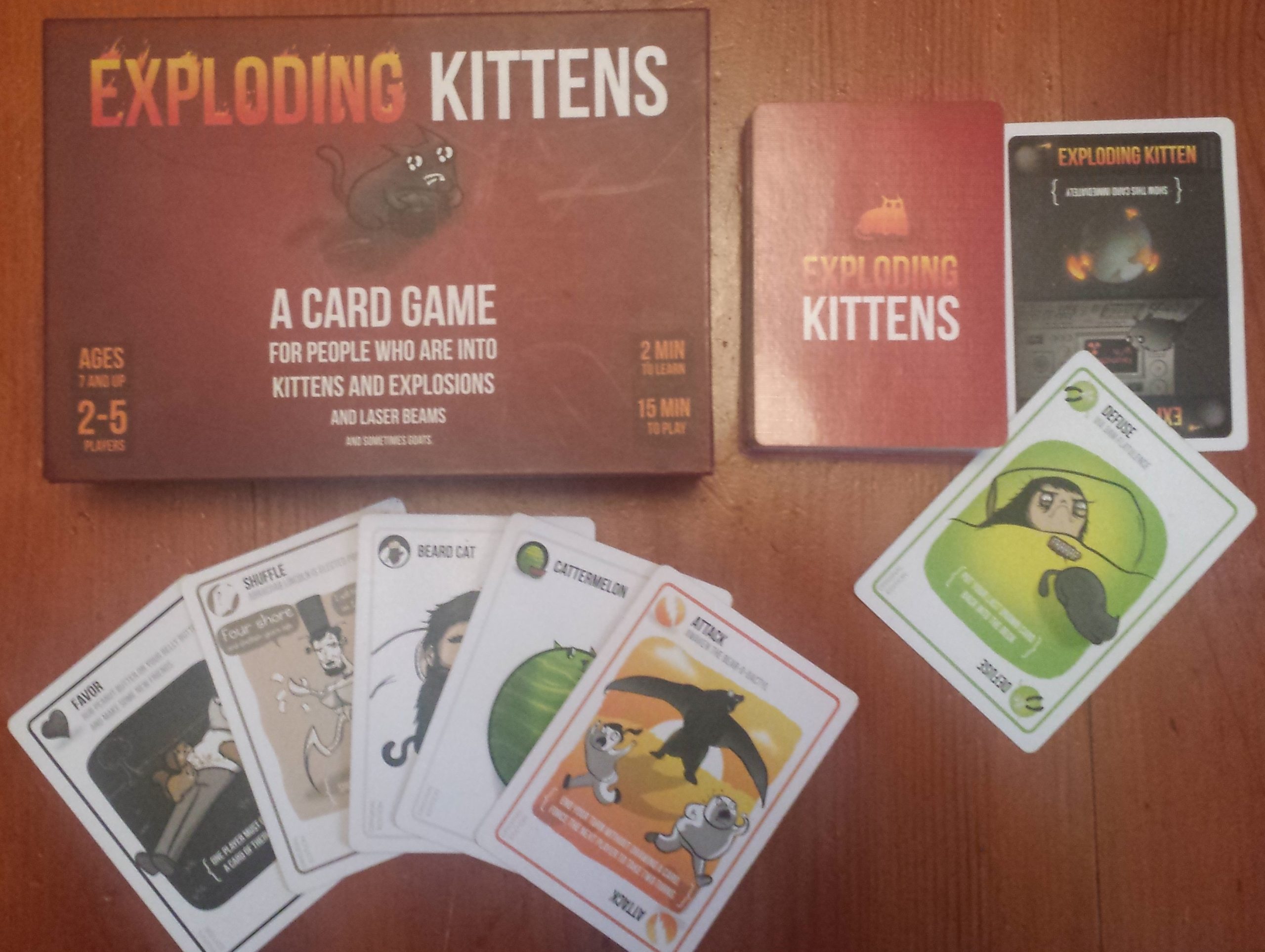
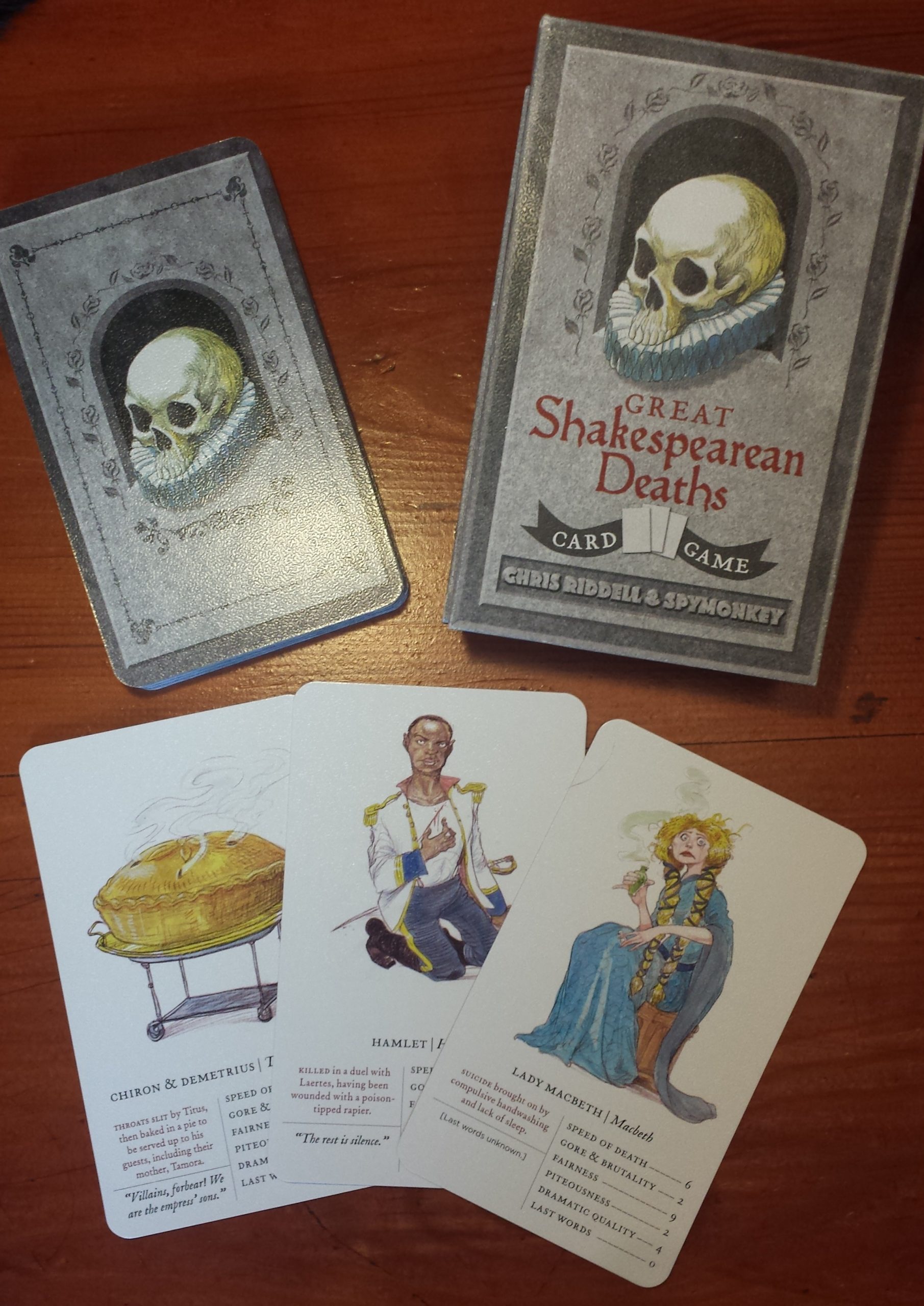
Learning Outcome: Pupils will be more familiar with Shakespearean characters and quotations.
Mr Jack
While it is easy to learn the basics of this and it is easily accessible, you can also enable pupils to employ a lot of strategy. When we first played we played in a very straightforward way and soon realised that there is a much deeper, more strategic level. Much of this lies in the object of the game and the cleverness of the asymmetry: one player — Mr Jack must avoid detection while the second player – The Inspector must discover Mr Jack’s assumed identity before time runs out. The Inspector moves the character tokens (Holmes, Watson and Toby the dog) around the edge of the board, looking down the alleys for Mr Jack. Meanwhile, Mr Jack must try to either block or maximise their view to stop the Inspector deducing Mr Jack’s identity. The game is well balanced; neither character has any advantage over the other. It is an excellent strategy game for two players with some links to English Literature; Holmes fans will approve of the use of Toby the dog.
Mr Jack costs about £12.99
Learning Outcome: Pupils can strategise and plan, changing their plans as they find out new information.
Tantrix
Another game with a very simple premise, allowing pupils to learn the game quickly, yet with endless strategic opportunities is Tantrix. As a bonus it is made from Bakelite and comes in a handy carrying pouch so is probably the most durable of all the games recommended here.
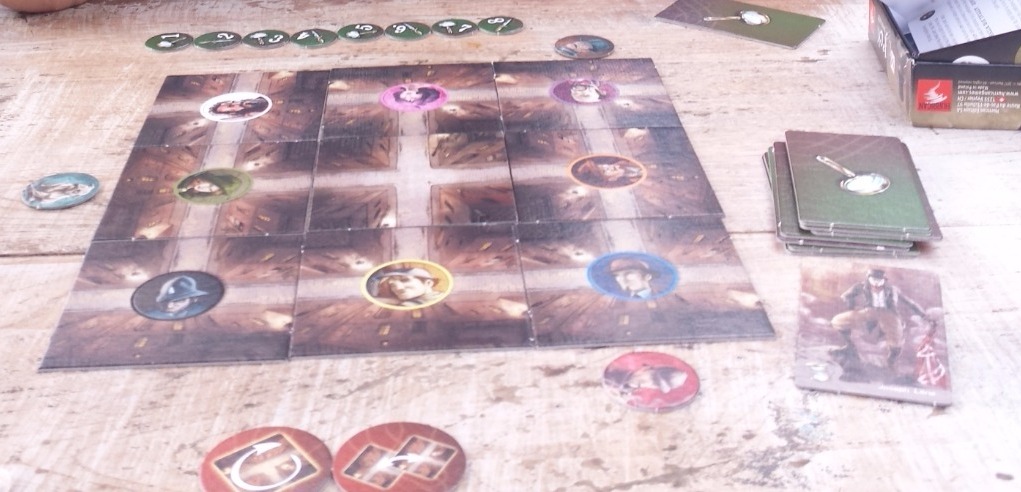
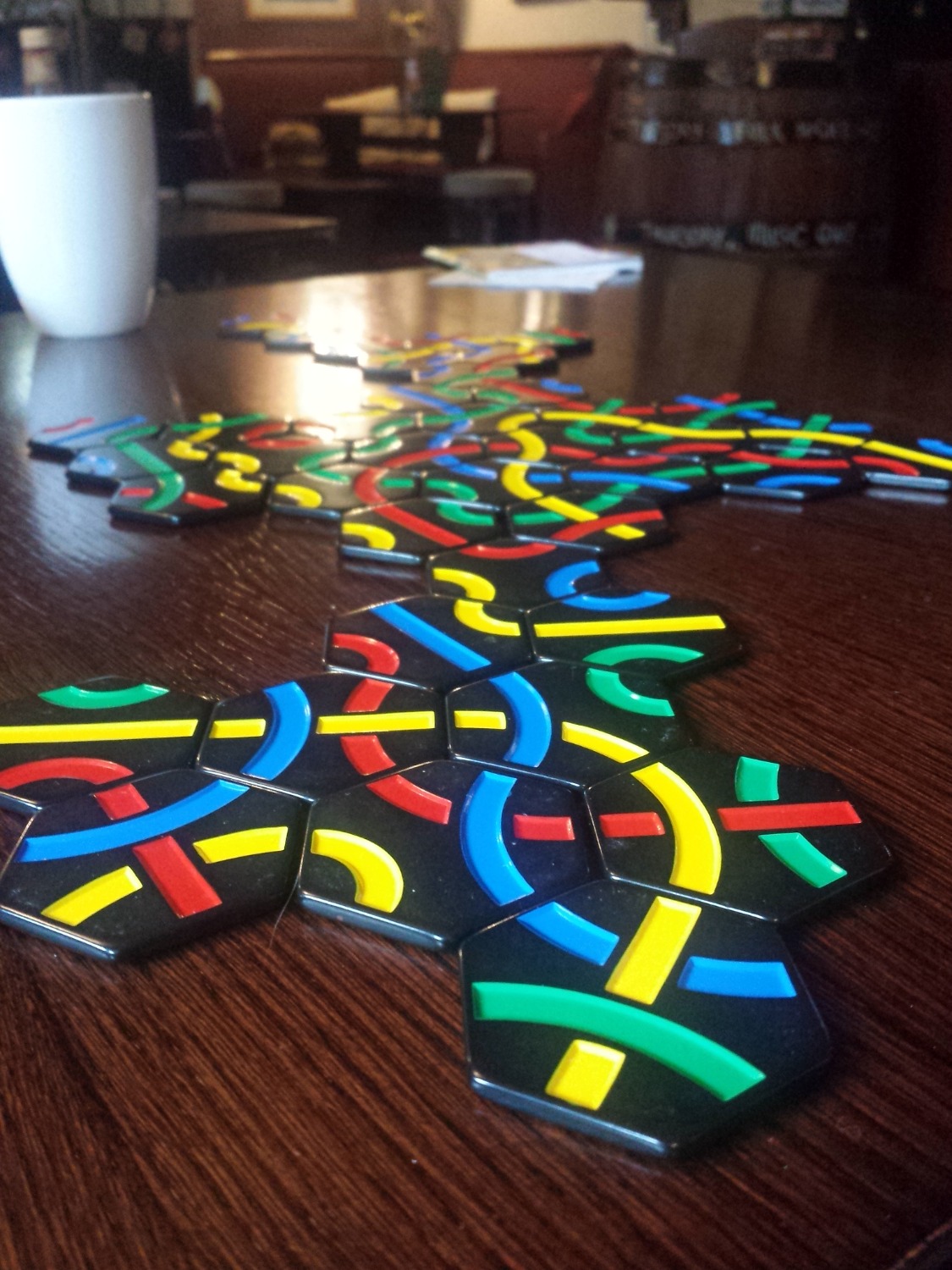
You choose a colour and then you must form the longest line or largest loop of that colour. There are some extra rules where you must fill certain spaces first and you can’t create 4 sided gaps but other than that, that’s it. The beauty of games like this is that your brain isn’t filled with rules you are instead absorbed by the challenge. It is another game that people want to play multiple times once they have grasped the objective.
Plays up to 4 and there are also solo variations and puzzles that you can play. It costs about £20.
Learning Outcome: Pupils will consider patterns and strategy; taking time to consider their strategy and making predictions about the strategy of others.
There are so many good games out there that can be used effectively in schools (and workplaces) to aid learning and the development of teamwork, this is just a selection to get you started. Even Plato agrees, and he knew loads about stuff:
“Do not keep children to their studies by compulsion but by play.” -Plato
Let me know what games are a success at your school.
If you want to find out more about board gaming in schools email me to arrange a visit.